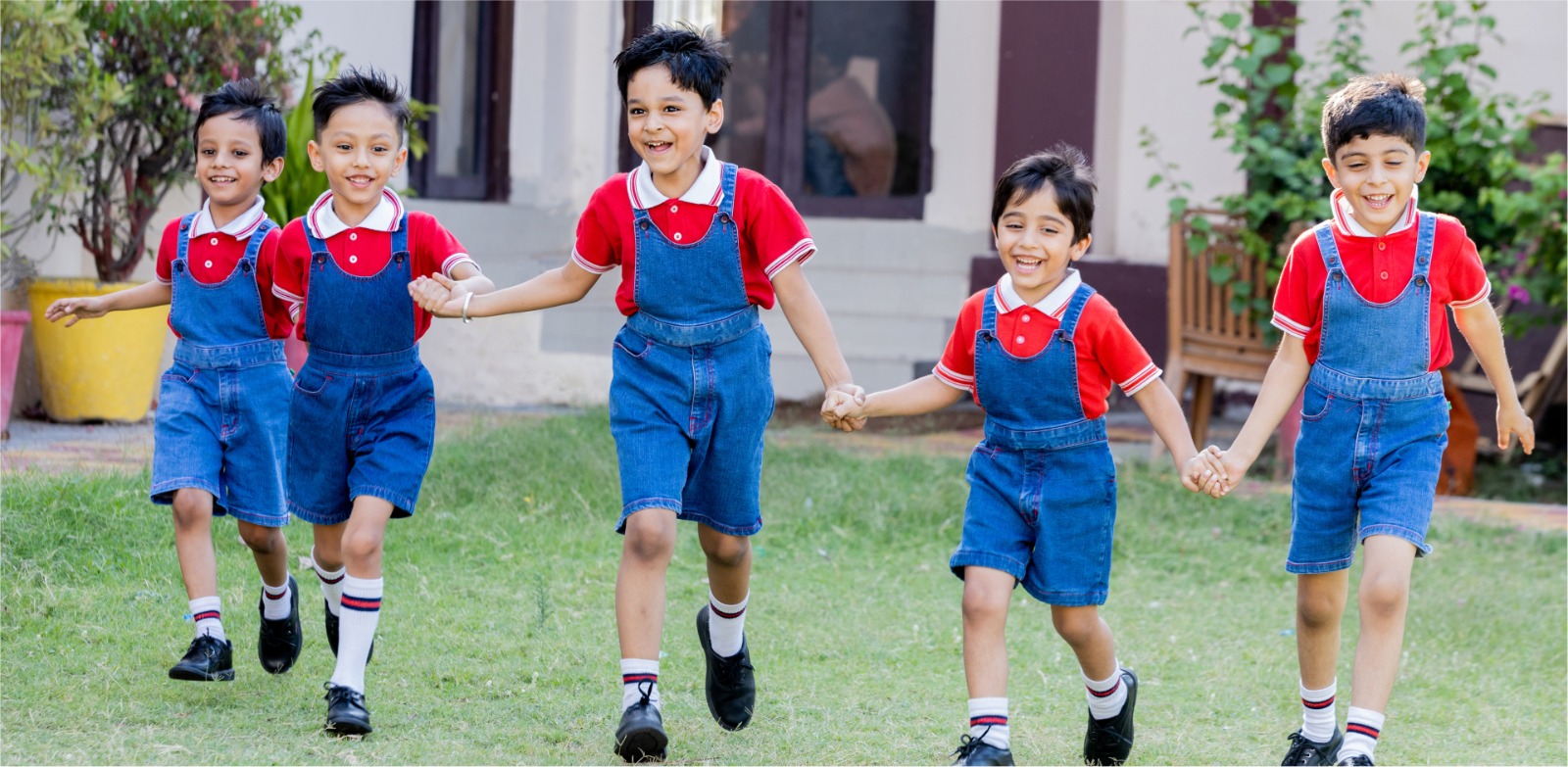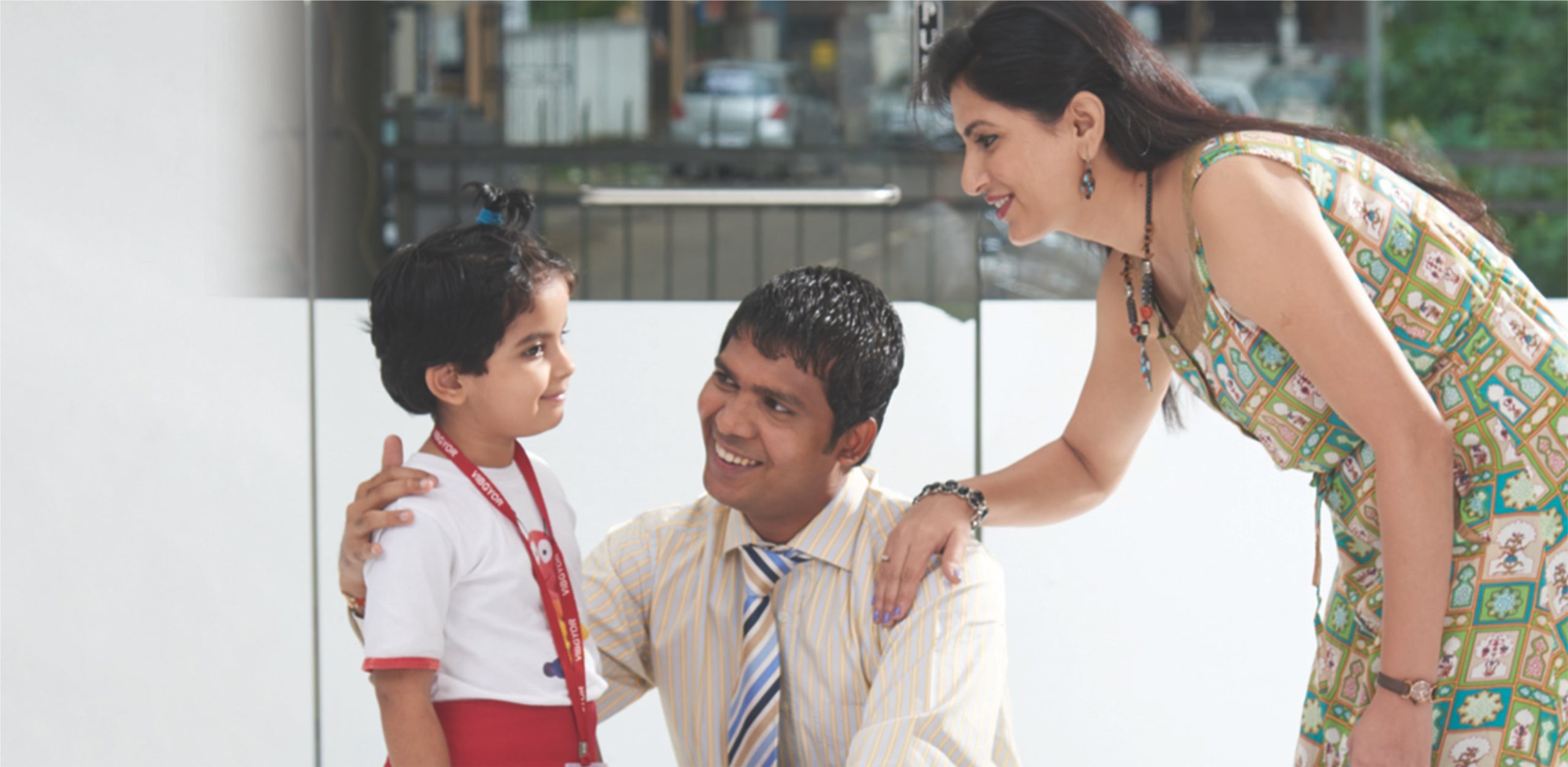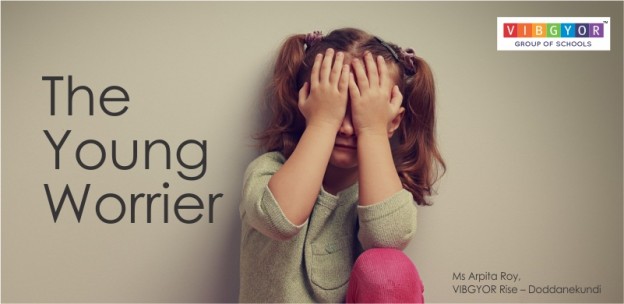![]()
Play is not just a pastime for children; it’s a crucial component of their development that lays the foundation for lifelong skills and abilities. Here are several reasons why play is so important in fostering children’s development:
Childhood is a time of boundless energy, curiosity, and innocence. It is a phase where learning and play are intertwined, forming the bedrock of holistic development. The essence of being a child is exploring the world through play, which is a crucial link between education and the pure joy of discovery.
This understanding dates back to the ancient Indian Gurukul system, where play and practical activities taught life skills, combining academic, physical, social, and moral education.
Srividya Iyer, Head of VIBGYOR’s Inclusive Education Cell & Career Counselling Department, underscored the importance of play in nurturing lifelong development skills for children.
1. Social interaction and teamwork
In the Gurukul system, social interaction and teamwork are fostered through collaborative activities and group learning. Children learn to share, communicate, and work together towards common goals, which helps them develop strong interpersonal skills. This approach is mirrored in contemporary educational practices that focus on real-world learning connections. By engaging in hands-on activities and projects, children today continue to build these essential social skills, preparing them for teamwork and collaboration in their future endeavours.
2. Resilience
The challenges encountered during play teach children resilience. They navigate obstacles, adapt to new situations, and persevere despite setbacks. These experiences cultivate a mindset of growth and determination. In modern education, experiential learning activities provide similar opportunities for children to develop resilience. By tackling real-world problems and scenarios, they learn to overcome difficulties and build mental toughness.
3. Self-confidence
Successfully mastering new skills and tasks during playtime enables children to instil a sense of accomplishment and self-belief. Today, we see that experimental learning methodologies continue to emphasise the importance of self-confidence. Children engage in activities that challenge their abilities and encourage them to take risks, helping them develop a strong sense of self-worth and confidence.
4. Emotional intelligence
Understanding and managing emotions is one of the most important skills children master through play. Role-playing and imaginative activities help them empathise with others and recognise different emotional expressions. This early development of emotional intelligence is crucial for forming healthy relationships and navigating social complexities. Modern education systems incorporate play-based learning to enhance emotional intelligence, allowing children to practise empathy and emotional regulation in a supportive environment.
5. Physical health
Physical activities promote overall health and fitness. Playful exercises and games help children develop motor skills, coordination, and physical strength. The emphasis on physical health continues through structured play and sports activities. These activities not only keep children physically active but also enhance their cognitive functions, supporting overall development.
6. Real-World Learning Connection (RWLC)
RWLC aligns with the National Curriculum Framework for Foundational Stage (NCF, 2022), emphasising experiential learning. This concept is also supported by the National Education Policy 2020 (NEP), which combines traditional and contemporary methods for early childhood development. By connecting academic concepts with real-life experiences, such as field trips to local businesses, RWLC helps children see the practical relevance of their studies. For instance, a visit to a bakery illustrates chemistry (baking), mathematics (measuring), and economics (business operations). This hands-on approach fosters curiosity and enhances learning both at school and at home.
7. Experiential learning
Experiential learning leverages children’s natural curiosity and desire to explore. It involves activities that encourage learning by doing things which are particularly effective during the developmental phase of 0–6 years. These activities are designed to be child-centred and play-based, promoting independence and social interaction.
For instance, programmes that take learning outside the traditional classroom setting, such as nature walks, camping trips, or adventure activities, promote physical health and teach children about ecology, teamwork, and survival skills. Through experiential learning, children connect academic concepts with practical experiences, making education an enjoyable and impactful journey.
From ancient educational systems to modern pedagogical approaches, the importance of play in building life-long skills is undeniable. This International Day of Play, let’s embrace the beauty and magic of having fun while learning and encouraging our kids to enjoy every moment.
Source: India Today
VIBGYOR Roots and VIBGYOR Kids are preschools by VIBGYOR Group of Schools.


